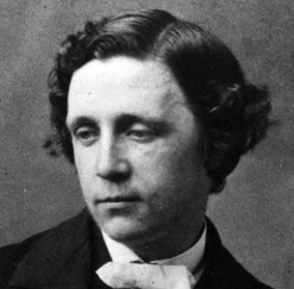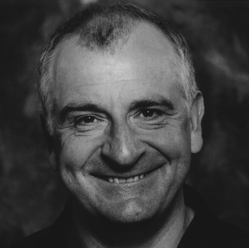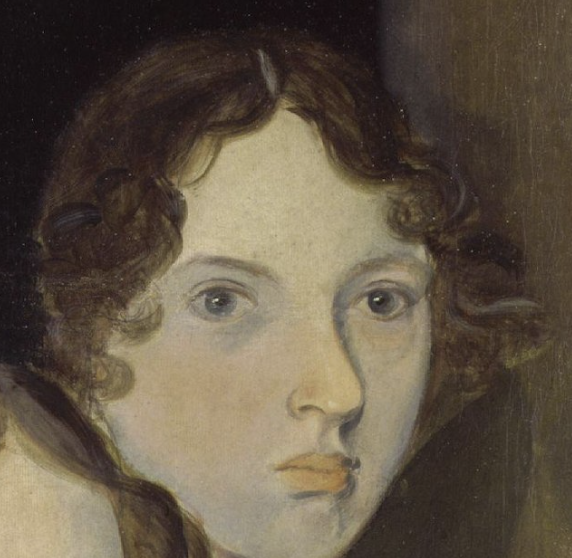What do your favourite characters sound like?
Select a character. You will then be asked to listen to short audio extracts of how the character might sound. Your task is to rate how each voice represents your interpretation of the character!
Alice in Wonderland
Alice was beginning to get very tired of sitting by her sister on the bank, and of having nothing to do: once or twice she had peeped into the book her sister was reading, but it had no pictures or conversations in it, 'and what is the use of a book' thought Alice 'without pictures or conversation'?

Lewis Carroll
November, 1865
The Hitchhiker's Guide to the Galaxy
The only person for whom the house was in any way special was Arthur Dent, and that was only because it happened to be the one he lived in. He had lived in it for about three years, ever since he had moved out of London because it made him nervous and irritable. He was about thirty as well, dark haired and never quite at ease with himself. The thing that used to worry him most was the fact that people always used to ask him what he was looking so worried about. He worked in local radio which he always used to tell his friends was a lot more interesting than they probably thought.

Douglas Adams
October, 1979
The Vanishing Half
In that little farm town, nothing surprising ever happened, not since the Vignes twins had disappeared. But that morning in April 1968, on his way to work, Lou spotted Desiree Vignes walking along Partridge Road, carrying a small leather suitcase. She looked exactly the same as when she'd left at sixteen — still light, her skin the color of sand barely wet. Her hipless body reminding him of a branch caught in a strong breeze. She was hurrying, her head bent, and — Lou paused here, a bit of a showman— she was holding the hand of a girl, seven or eight, and black as tar.

Brit Bennett
June, 2020
A Court of Thorns and Roses
As I sat before a marble canity letting Alis braid my wet hair, I cringed at my reflection. It wasn't pleasing - though not for its actual appearance. While my nose was relatively straight, it was the other feature I'd inherited from my mother. I could still remember how her nose would crinkle with feigned amusement when one of her fabulously wealthy friends made some unfunny joke. At least I had my father's soft mouth, though it made a mockery of my too-sharp cheekbones and hollow cheeks. I couldn't bring myself to look at my slightly uptilted eyes. I knew I'd see Nesta or my mother looking back at me. I'd sometimes wondered if that was why my sister had insulted me about my looks. I was a far cry from ugly, but... I bore too much of the people we'd hated and loved for Nesta to stand it.

Sarah J. Maas
May, 2015
Wuthering Heights
When would you catch me wishing to have what Catherine wanted? . . . I'd not exchange, for a thousand lives, my condition here, for Edgar Linton's at Thrushcross Grange—not if I might have the privilege of flinging Joseph off the highest gable, and painting the house-front with Hindley's blood!

Emily Brontë
December, 1847
The Catcher in the Rye
I also say "Boy!" quite a lot. Partly because I have a lousy vocabulary and partly because I act quite young for my age sometimes. I was sixteen then, and I'm seventeen now, and sometimes I act like I'm about thirteen. It's really ironical, because I'm six foot two and a half and I have gray hair. I really do. The one side of my head — the right side — is full of millions of gray hairs. I've had them ever since I was a kid. And yet I still act sometimes like I was only about twelve. Everybody says that, especially my father. It's partly true, too, but it isn't *all* true. People always think something's *all* true. I don't give a damn, except that I get bored sometimes when people tell me to act my age. Sometimes I act a lot older than I am — I really do — but people never notice it. People never notice anything.

J.D. Salinger
July, 1951
James and the Giant Peach
Now this, as you can well imagine, was a rather nasty experience for two such gentle parents. But in the long run it was far nastier for James than it was for them. Their troubles were all over in a jiffy. They were dead and gone in thirty-five seconds flat. Poor James, on the other hand, was still very much alive, and all at once he found himself alone and frightened in a vast unfriendly world. The lovely house by the seaside had to be sold immediately, and the little boy, carrying nothing but a small suitcase containing a pair of pajamas and a toothbrush, was sent away to live with his two aunts.

Roald Dahl
January, 1961
Macbeth
Glamis, thou art; and Cawdor; and shalt be What thou art promised. Yet do I fear thy nature; It is too full o' the milk of human kindness To catch the nearest way. Thou wouldst be great; Art not without ambition, but without The illness should attend it. What thou wouldst highly, That wouldst thou holily; wouldst not play false, And yet wouldst wrongly win. Thou'ldst have, great Glamis, That which cries, 'Thus thou must do, if thou have it; And that which rather thou dost fear to do Than wishest should be undone.' Hie thee hither, That I may pour my spirits in thine ear; And chastise with the valour of my tongue All that impedes thee from the golden round, Which fate and metaphysical aid doth seem To have thee crown'd withal.

William Shakespeare
1623
Oliver Twist
Now, the old gentleman came in as brisk as need be; but, he had no sooner raised his spectacles on his forehead, and thrust his hands behind the skirts of his dressing-gown to take a good long look at Oliver, than his countenance underwent a very great variety of odd contortions. Oliver looked very worn and shadowy from sickness, and made an ineffectual attempt to stand up, out of respect to his benefactor, which terminated in his sinking back into the chair again; and the fact is, if the truth must be told, that Mr. Brownlow’s heart, being large enough for any six ordinary old gentlemen of humane disposition, forced a supply of tears into his eyes, by some hydraulic process which we are not sufficiently philosophical to be in a condition to explain.

Charles Dickens
February, 1837